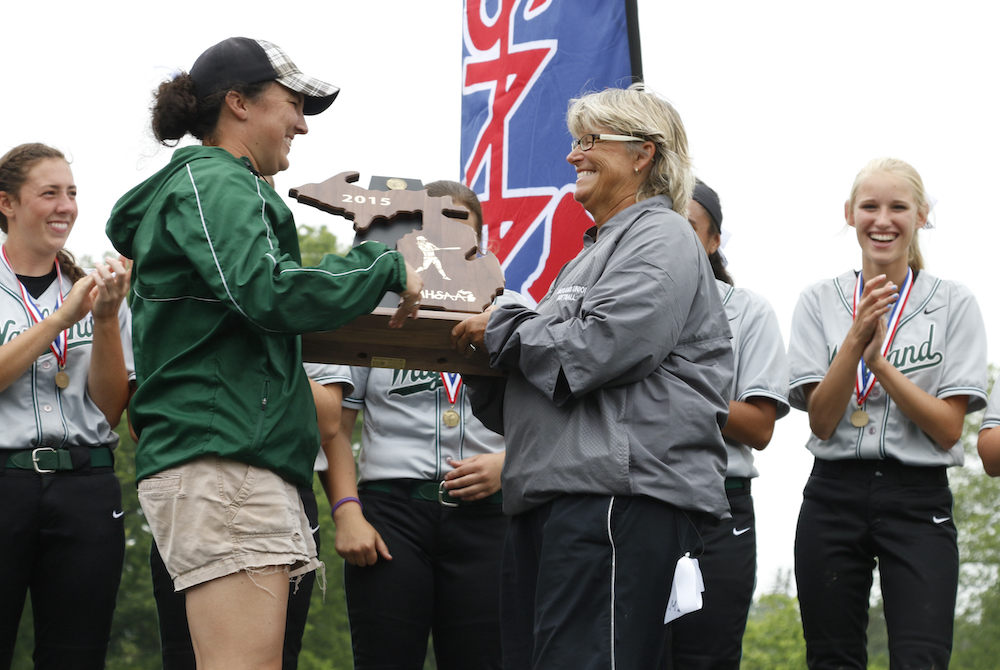
Permission to Disagree
February 17, 2015

COMMENTARY: Public Act 184 a Real Loser for School Sports in Michigan
By
Mark Uyl
MHSAA Executive Director
October 20, 2022
There is a crisis in Michigan schools today that centers on one problem:
Not having enough people.
In discussions with school district personnel, we are being told there has never been a more difficult time for finding people than today. All of us are searching high and low to find coaches for athletic teams, and officials, referees and umpires to administer those games in an orderly and safe way. Dig a little deeper, and school districts are desperate to find those willing to serve as substitute teachers and bus drivers.
Because of this current reality, we continue to be dumbfounded over the approval of Public Act 184 this past summer. This created a new set of retirement rules stipulating that a retiring teacher or administrator cannot be rehired to serve as a coach until after a nine-month waiting period. Even more frustrating: Individuals who had served as high school coaches for many years, who retired from the classroom last June but had planned to keep coaching for a few more seasons, are being told they cannot do so. Those coaches are sidelined, and for no sensible reason.
Cheri Ritz has been the varsity softball coach at Wayland High School since 1995. Cheri has won numerous championships, and has been a model coach and great leader of students throughout her career. Cheri retired as a teacher in June and planned to keep coaching the softball team for a few more years, making a small fraction of what her classroom salary was before retirement. Under the “old” retirement law, Cheri could have retired in June and been detached from the district for 30 days, and then returned and worked for the district in any capacity as long as she was making less than 30 percent of her compensation at the time of her retirement. Under PA 184, this scenario can no longer happen.
In the state of Michigan, we have hundreds of recently-retired school people who want to continue to be some of our best coaches, making pennies on the hour for their time. Now they simply aren’t allowed to do so because of a law that had no intention of impacting coaches and school sports. Cheri is just one example. The same issue has found several more longtime, successful coaches including Northville’s golf coach Chris Cronin and cross country & track field’s Steve Porter at Milan High School.
For the past few months, the MHSAA has met with the Office of Retirement Services, representatives from the Governor’s office and even the bill sponsor of PA 184. Every single conversation revealed the fact that coaches were not even part of the discussion when this new retirement law was passed. In other words, recent retirees continuing to coach were not the issue, but yet this new law now treats coaches as some sort of enemy with zero phase-in period, modification or even the ability to seek a waiver of this new law which became effective immediately on July 25, 2022. We have tried to work within the system to seek some commonsense approaches and solutions to this problem, but to no avail as of yet.
We need your help. We need you to contact the Governor’s office and your State Representative and State Senator’s offices. Let them know PA 184 needs to be fixed now. We need to find a way to let these individuals continue to coach and lead our student-athletes. Let them know our kids cannot play their games without individuals who want to coach, and let them know our kids will miss out on learning valuable life lessons if these coaches are not allowed to continue.
And let them know that PA 184 could not have been passed at a worse time given our most valuable resource – people – is at an all-time low.
PHOTO: Wayland softball coach Cheri Ritz, front right, accepts the Division 2 championship trophy in 2015.

